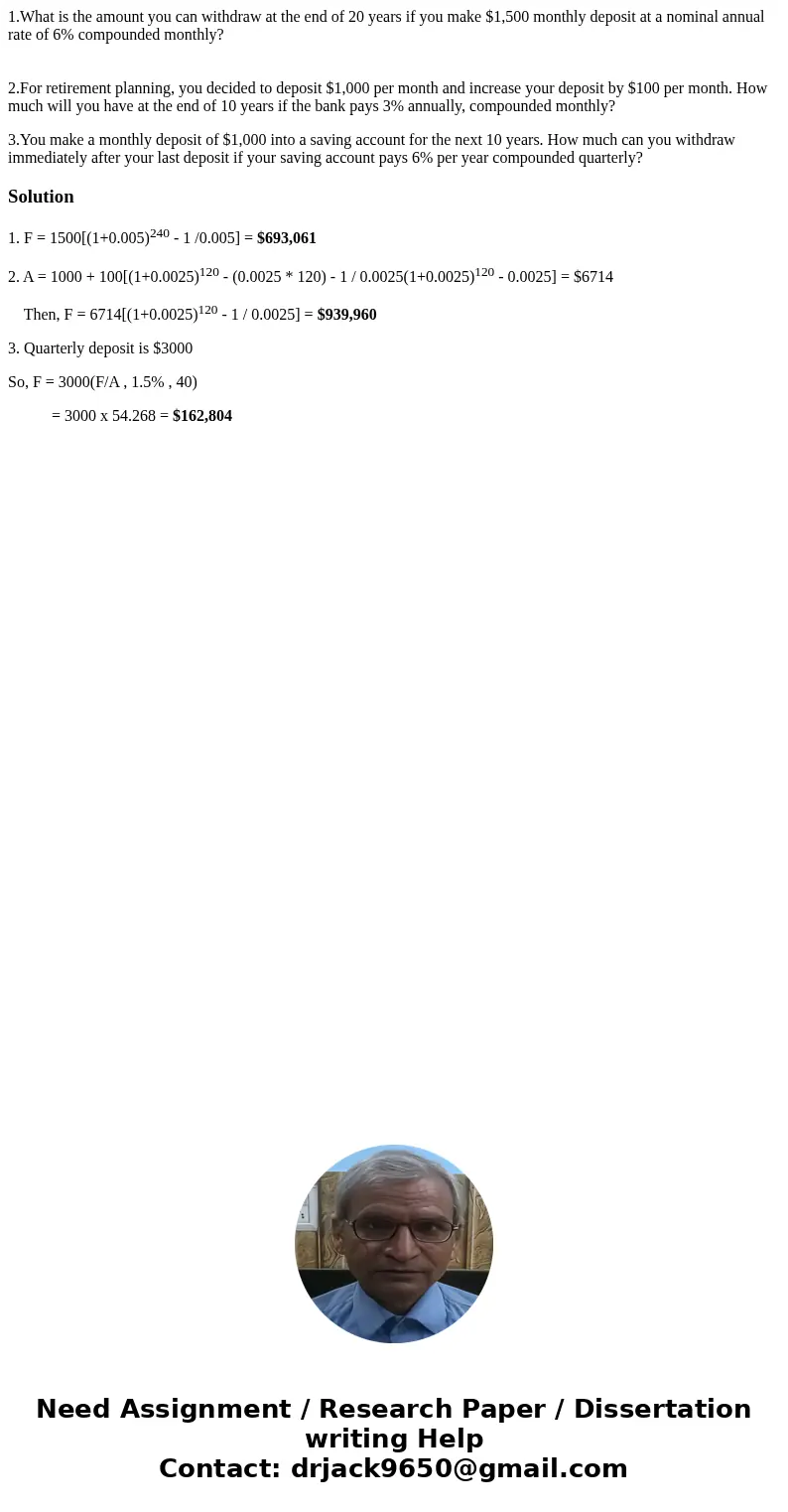1What is the amount you can withdraw at the end of 20 years
1.What is the amount you can withdraw at the end of 20 years if you make $1,500 monthly deposit at a nominal annual rate of 6% compounded monthly?
2.For retirement planning, you decided to deposit $1,000 per month and increase your deposit by $100 per month. How much will you have at the end of 10 years if the bank pays 3% annually, compounded monthly?
3.You make a monthly deposit of $1,000 into a saving account for the next 10 years. How much can you withdraw immediately after your last deposit if your saving account pays 6% per year compounded quarterly?
Solution
1. F = 1500[(1+0.005)240 - 1 /0.005] = $693,061
2. A = 1000 + 100[(1+0.0025)120 - (0.0025 * 120) - 1 / 0.0025(1+0.0025)120 - 0.0025] = $6714
Then, F = 6714[(1+0.0025)120 - 1 / 0.0025] = $939,960
3. Quarterly deposit is $3000
So, F = 3000(F/A , 1.5% , 40)
= 3000 x 54.268 = $162,804

 Homework Sourse
Homework Sourse